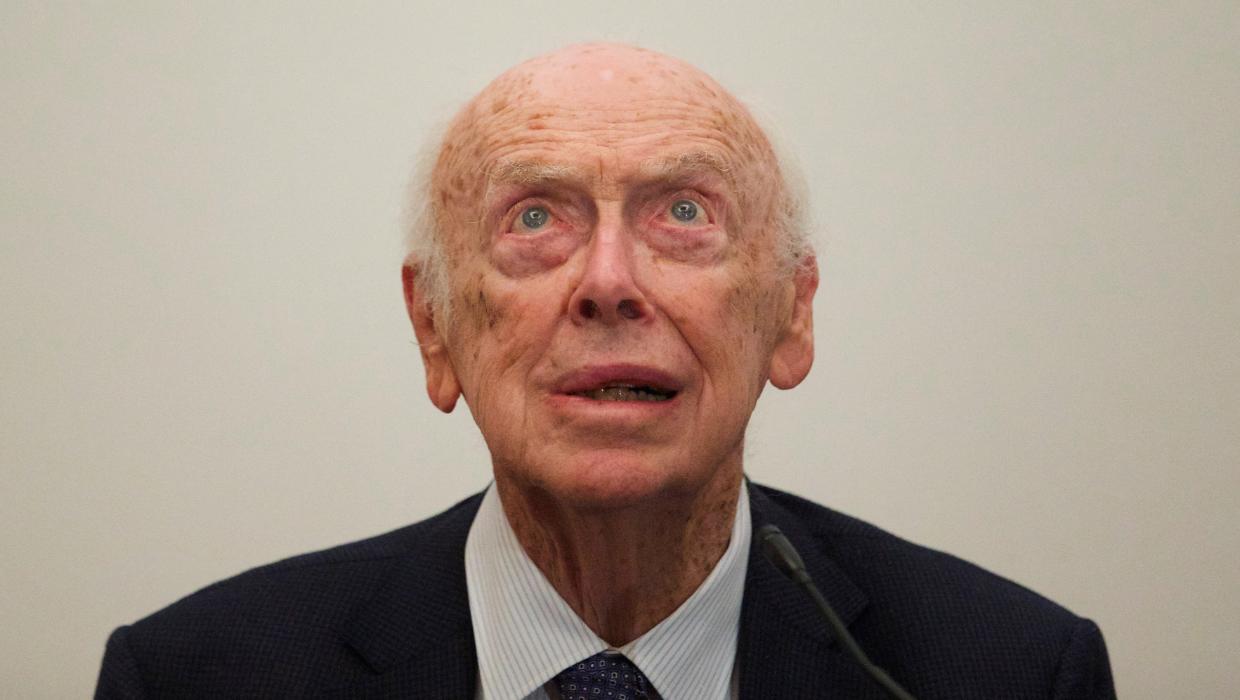Science
Renowned Scientist James Watson Passes Away at 95

James Watson, the co-discoverer of the structure of DNA, passed away at the age of 95, marking the end of a controversial yet influential career in genetics. Watson, who was only 24 years old when he and Francis Crick unveiled the now-iconic double helix structure in 1953, became a prominent figure in the scientific community. His contributions earned him the Nobel Prize in Physiology or Medicine in 1962, shared with Crick and Maurice Wilkins.
Legacy and Controversy
Despite his groundbreaking work, Watson’s later years were marred by controversy. He faced significant backlash for a series of remarks that many deemed offensive and inappropriate. These statements, often related to race and intelligence, led to professional censure and a diminished public reputation. In 2019, he was stripped of honorary titles at Cold Spring Harbor Laboratory, where he had long served as a leader and researcher.
Watson’s work on DNA has had an enduring impact on fields ranging from genetics to biotechnology. The discovery has paved the way for advances in medical research, including gene therapy and personalized medicine. However, his later comments have sparked discussions about the responsibilities of scientists in the public sphere, particularly regarding ethical considerations in their research and public statements.
Reflections on a Complex Figure
The scientific community is now reflecting on Watson’s dual legacy. On one hand, he is celebrated as a pioneer whose research fundamentally changed our understanding of biology. On the other, his controversial views have raised questions about the intersection of science and ethics.
David Baltimore, a former president of the American Association for the Advancement of Science, stated, “While we respect his scientific contributions, we must also confront the damaging impact of his words.” This sentiment echoes among many who recognize both the value and the pitfalls of Watson’s legacy.
As the world remembers James Watson, his death serves as a reminder of the complexities inherent in scientific achievement. His life encapsulated both extraordinary discovery and significant moral challenges, prompting ongoing dialogue about the role of scientists in society.
-

 World3 months ago
World3 months agoTest Your Knowledge: Take the Herald’s Afternoon Quiz Today
-

 Sports3 months ago
Sports3 months agoPM Faces Backlash from Fans During Netball Trophy Ceremony
-

 Lifestyle3 months ago
Lifestyle3 months agoDunedin Designers Win Top Award at Hokonui Fashion Event
-

 Sports3 months ago
Sports3 months agoLiam Lawson Launches New Era for Racing Bulls with Strong Start
-

 Lifestyle3 months ago
Lifestyle3 months agoDisney Fan Reveals Dress Code Tips for Park Visitors
-

 World4 months ago
World4 months agoCoalition Forms to Preserve Māori Wards in Hawke’s Bay
-

 Health3 months ago
Health3 months agoWalking Faster Offers Major Health Benefits for Older Adults
-

 Politics3 months ago
Politics3 months agoScots Rally with Humor and Music to Protest Trump’s Visit
-

 Top Stories4 months ago
Top Stories4 months agoUK and India Finalize Trade Deal to Boost Economic Ties
-

 Entertainment3 months ago
Entertainment3 months agoExperience the Excitement of ‘Chief of War’ in Oʻahu
-

 World4 months ago
World4 months agoHuntly Begins Water Pipe Flushing to Resolve Brown Water Issue
-

 Science4 months ago
Science4 months agoNew Interactive Map Reveals Wairarapa Valley’s Geological Secrets









